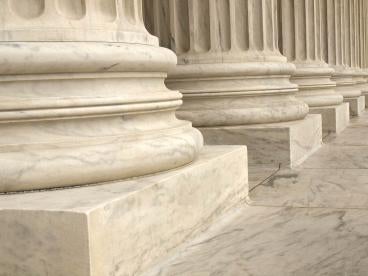On April 23, 2024, the U.S. Supreme Court is set to hear oral arguments in an immigration case, Department of State v. Muñoz. The questions presented before the Supreme Court include:
- Whether a consular officer’s refusal of a visa to a U.S. citizen’s noncitizen spouse impinges upon a constitutionally protected interest of the citizen; and
- Whether, assuming that such a constitutional interest exists, notifying a visa applicant that he was deemed inadmissible under 8 U.S.C. § 1182(a)(3)(A)(ii) suffices to provide any process that is due.
The Supreme Court’s decision will determine whether United States citizens have a constitutionally protected interest, through the due process clause, in visa petitions filed on behalf of their spouse.
As background, Sandra Muñoz, a United States citizen, filed an I-130 Petition for Alien Relative on behalf of her spouse, Luis Ernesto Asencio-Cordero, a citizen of El Salvador, which was approved along with a waiver for his admissibility. At his interview in El Salvador, the consulate determined he was ineligible to receive a visa and ineligible for admission to the U.S. The consulate cited 8 U.S.C. § 1182(a)(3)(A)(ii), which states that “[a]ny alien who a consular officer or the Attorney General knows, or has reasonable ground to believe, seeks to enter the United States to engage solely, principally, or incidentally in...any other unlawful activity.”
However, no factual reasons were provided for finding Asencio-Cordero inadmissible. In Muñoz, the U.S. Court of Appeals for the Ninth Circuit held that “the government failed to provide constitutionally required notice within a reasonable time period following the denial” of his visa application.
The government appealed the decision; arguing that the Ninth Circuit erred in finding that a U.S. citizen has a protected “liberty interest” under the Fifth Amendment’s due process clause that was infringed by the denial of a visa to a noncitizen spouse. This departs from the other circuits.
If the Supreme Court upholds the Ninth Circuit decision, there could be ripple effects leading potentially to employers using a similar argument to seek to overturn denials for employees seeking visas at U.S. embassies and consulates abroad. Currently, when an embassy or consulate denies an employment visa, there is little recourse available to an employer.




 i
i


